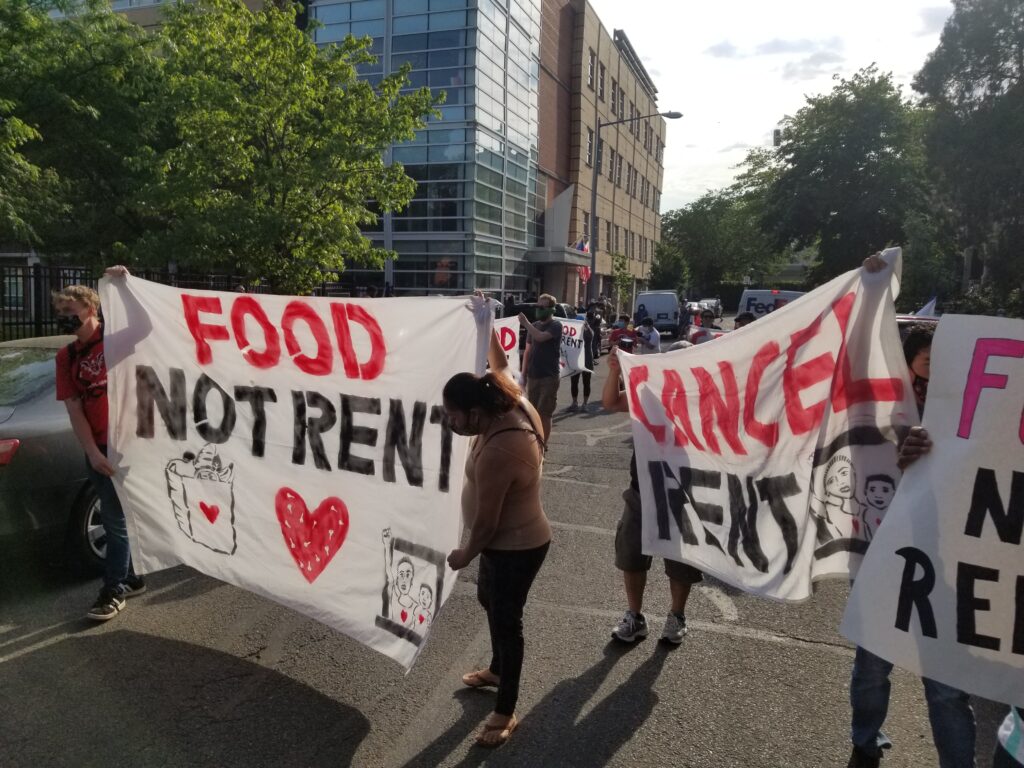Landlords of affordable housing units have seven days left to apply for housing stabilization grants to cover tenants’ missed rent payments from the COVID-19 pandemic.
The new program, announced on Monday by D.C. Mayor Muriel Bowser, will provide up to $10 million in grants to landlords whose tenants have been unable to make rent. The money comes from the District’s remaining CARES Act funding.
Each grant will cover 80% of missing payments, up to $2,000 per tenant per month, for April through November. To qualify for the grants, landlords must agree to waive the remaining 20% of rent and any unpaid fees, effectively canceling rent for the tenants of participating landlords.
Both affordable housing providers and renters have been calling for more comprehensive assistance for tenants since this summer. Though the District has had an eviction moratorium in place since March, missed rent payments are piling up for some tenants, who have testified asking the D.C. Council to cancel rent or place the burden for applying for relief on landlords, who have more time and resources available. Though the new program does not simply cancel rent, as some tenants have been calling for, it is the most comprehensive relief program the District has initiated.
[Read more: Protesters call for Anita Bonds to cancel rent]
Ninety percent of funds will be dedicated to providers in the affordable housing portfolio managed under the Department of Housing and Community Development and the Housing Finance Agency. Small landlords who have 20 or fewer units but are not in the city’s portfolio may apply for the remaining $1 million.
Altogether, the grants will cover at least 5,000 months of missed rent. However, more than 30,000 units across 274 properties could be eligible, according to DCHFA Interim Director Christopher Donald. If landlords were awarded the maximum-available benefit for each unit, $10 million would assist 714 households.
“This pandemic has forced an unprecedented and disproportionate financial burden on our low-income renters, through no fault of their own. By allowing housing providers to apply for assistance on behalf of tenants, we can provide swifter relief,” Bowser wrote in the press release. “The Housing Stabilization Grants will help us protect our affordable housing stock and keep residents in their homes.”
Affordable housing providers can apply by sending an email to [email protected] including all documents on this list for each property they are seeking relief for. Small housing providers can apply here.
Applications opened Monday and will be available until Dec. 11. They will be assessed on a rolling basis, but all funds must be distributed by Dec. 31 when the CARES Act expires.
Starting in January, housing providers will also be able to apply directly to the COVID-19 Housing Assistance Program (CHAP) on behalf of tenants, which will cover up to three months of rent missed due to COVID-19. Bowser also announced she will direct an additional $4 million in funding to CHAP, which was previously only open to tenants. According to Bowser, only $500,000 of the now $10 million available in aid has been distributed.
[Read more: For District residents who can’t make rent, aid is still available]
This update follows a survey conducted by DHCD that found more than one-third of housing providers with a mortgage had difficulty meeting payments in October, and most providers were unaware of existing rental assistance programs available to tenants. According to the U.S. Census Data from Nov. 23, about 30% of renters in the District reported being behind on rent payments, far above the nationwide rate of 16%.








